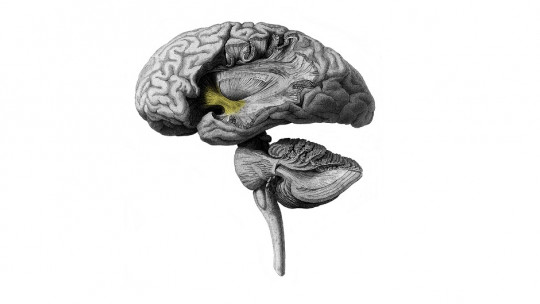Most experts in the areas of psychology, psychiatry and criminology conceives that the Antisocial Personality Disorder It is a heterogeneous category, although the DSM-IV (Diagnostic and Statistical Manual of Mental Disorders, American Psychiatric Association, 1994) considers it as a group with a unique identity.
In his book, David Lykken (1994) maintains that the subjects that make up this group “are characterized by a persistent predisposition toward antisocial behavior” (p. 45). This already indicates that the concept of psychopath can become confused or overlap with that of sociopath. Therefore, in this article we will focus on seeing what are the differences between psychopathy and sociopathy
Antisocial Personality Disorder, psychopathy and sociopathy
In order to establish the differences between psychopathy and sociopathy , we are going to proceed to examine both cases. It could be said, despite not having official recognition, that these are two of the three large categories into which Antisocial Personality Disorder is divided.
Psychopathy
Psychopathy is expressed by innate antisocial tendencies due to biological, quantitative temperament or qualitative differences in the brain function of those who suffer from it, which make the socialization of this class of individuals difficult when they are in an age of growth.
Sociopathy
Sociopathy occurs mainly in individuals with a normal temperament, but who They do not have acquired socializing attributes as a result of negligent upbringing and incompetent on the part of the main agents of socialization: the parents. Therefore, in their dynamics of interaction with other people, they can cause harm with relative ease, as well as transgress fundamental rules for coexistence practically without realizing it.
The main differences between psychopathy and sociopathy
So, how can we distinguish between the concepts of sociopathy and psychopathy? Let’s see their differences summarized below.
1. The psychopath can function well socially
Psychopaths are capable of knowing and being aware of the basic rules of socialization , and can even dominate behavioral patterns considered charismatic. On the other hand, sociopaths have serious difficulties in being accepted, because even if they try, they can rarely be charming, kind, seductive…
2. Psychopathy is characterized by a lack of empathy
The greater a person’s tendency towards psychopathy, the less their predisposition to empathize Therefore, in cases of extreme psychopathy, these people see others as mere tools to achieve their goals.
On the other hand, sociopaths can empathize, but due to their negligent upbringing, it is difficult for them to “connect” with others or predict the type of behaviors that will cause discomfort in others.
3. Sociopaths are more emotionally unstable
Both psychopaths and sociopaths tend to be impulsive people and have trouble repressing their desire to satisfy their immediate needs. However, this tendency is more marked in sociopaths, who find it difficult to channel their emotions by making plans to release them. This does not occur so much in psychopaths, who may try to give in to their impulses in more or less functional ways (even if it’s breaking rules).
4. Sociopaths show a greater predisposition to violence
Because psychopaths are more adept at navigating through society without setting off unnecessary alarms, they can determine when it pays and when not to behave violently (although their vision is usually short- and medium-term, and not so much long-term). .
Instead, sociopaths are more unpredictable in this regard and relatively frequently they find themselves involved in situations of violence that they trigger almost without intending to, spontaneously.
5. Sociopathy is linked to poverty and marginality
Due to the characteristics that we have seen so far, sociopaths have a very difficult time climbing socially, and many times their life path comes into contact with the criminal world through fines or even imprisonment. On the other hand, Their lifestyle habits prevent them from aspiring to long-term goals capable of leading them to better standards of living.
On the other hand, among people with marked psychopathy it is not uncommon to climb socially, and there are even well-paid jobs that fit their characteristics by requiring the ability not to empathize too much with others.
Parenting is decisive in sociopathy
The dynamics of the negligent educational style on the part of the parents results, in the future, in feral children incapable of socializing correctly and who commit crimes.
If, in addition, the parents of these young people were also raised under irresponsible and indifferent supervision, since they are immature in this aspect, it is very difficult for them to know how to straighten their offspring, if at all it worries them in the slightest. David Lykken suggests that recent cultural changes that have occurred in the United States have contributed to the growth in the incidence of this inept parenting.
As the author himself says: “the antisocial personalities responsible for the majority of crimes in the US are not psychopaths. They are sociopaths” (p.10). So that, sociopathic personalities are more numerous and represent a greater social problem due to the increase in crime and violence rates. They are very present in Western society, and more in cities than in rural populations.

The typical profile of the sociopath
Sociopathy is the broadest subgenre of Antisocial Personality Disorder. In it we find individuals (normally young men, although the presence of women is increasing) who were not socialized well in childhood and adolescence. These deficiencies in their moral and emotional development are the necessary basis for a case of sociopathy to arise.
This should not lead us into error, since the temperament of a sociopath is often normal despite parental clumsiness; while others may be nervous or constantly seeking stimulation. The majority of the prison population meets the diagnostic criteria for Antisocial Personality Disorder that identify more than half of the men we consider “common criminals.”
In summary, The sociopath is the failed product of a negligent and undisciplined education It should be said, however, that having received a poor education is not the only factor that explains sociopathy. It is not unusual to meet people who, despite the many difficulties they experienced during their childhood, have been able to find their place in the world and be individuals with whom we can relate in total normality.









